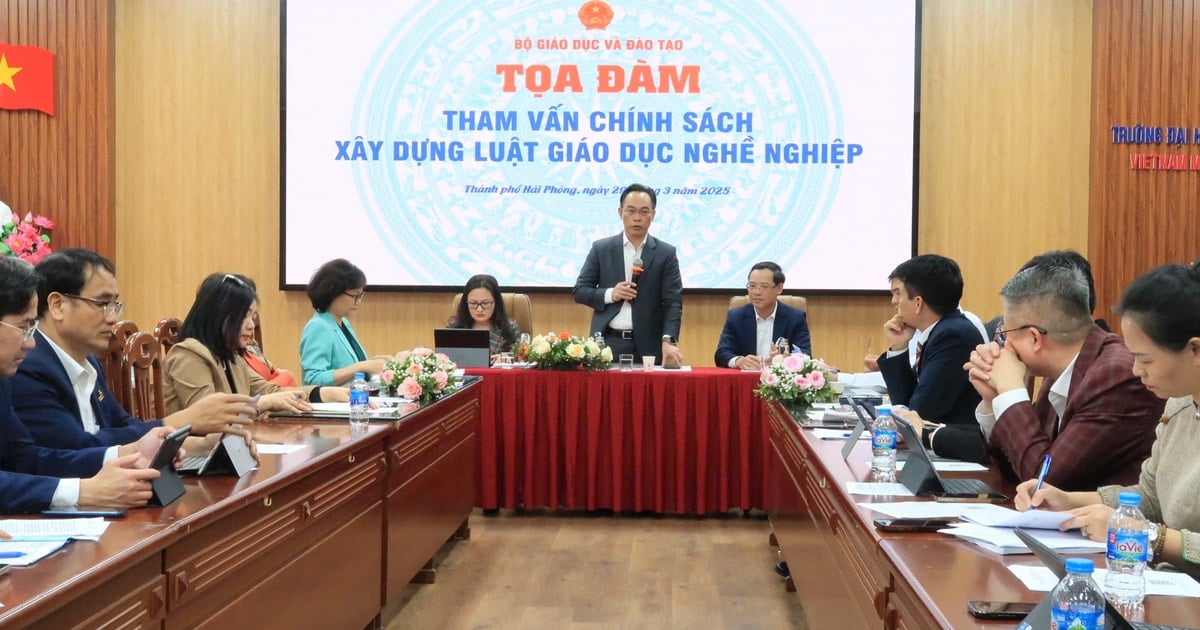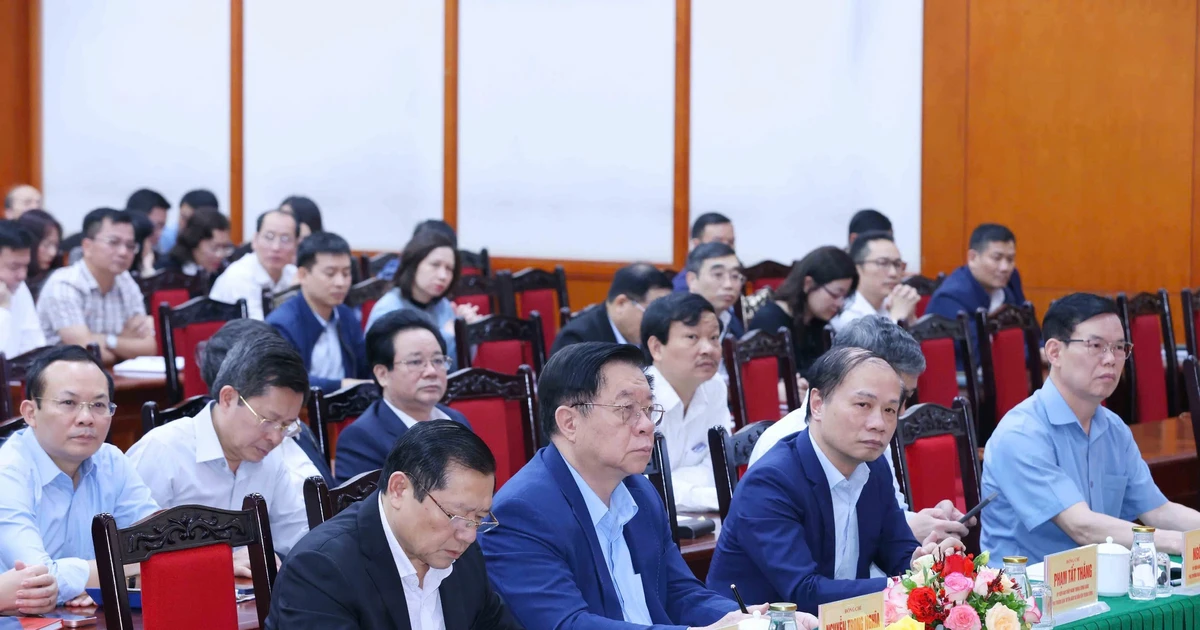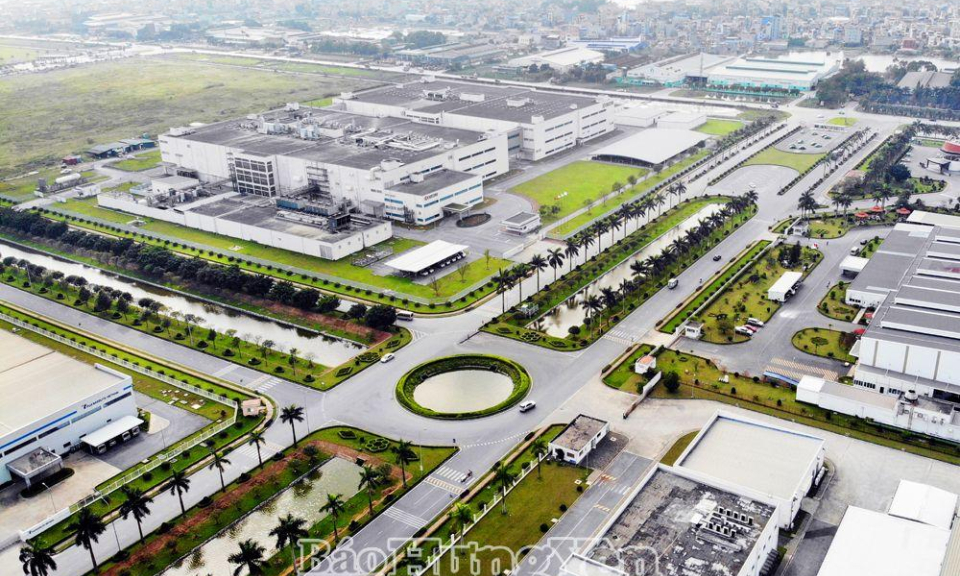SGGPO
In recent days, information about the Ministry of Education and Training issuing Circular 11/2023/TT-BGDDT (Circular 11) on the abolition of Circular 23/2014/TT-BGDDT dated July 18, 2014 (Circular 23) regulating high-quality university-level training has attracted the attention of many people.
 |
| Students of International University (Ho Chi Minh City National University) during a practical class |
According to Circular 11 of the Ministry of Education and Training, courses enrolled before December 1, 2023 (the effective date of Circular 11) will continue to organize training until the end of the course according to the regulations in Circular 23.
The Ministry of Education and Training explained that the abolition of Circular No. 23/2014/TT-BGDDT is necessary and consistent with the provisions of the Law on Higher Education 2018. Specifically, Clause 6, Article 65 of the Law on Higher Education 2012 stipulates that “The Minister of Education and Training shall prescribe criteria for determining high-quality training programs; shall be responsible for managing and supervising tuition fees commensurate with training quality”.
However, according to the provisions of the Law on Higher Education 2018, the concept of high-quality training programs no longer exists. The development of different types of training programs is under the autonomy of higher education institutions, ensuring compliance with regulations on training program standards for higher education levels stipulated in Circular No. 17/2021/TT-BGDDT of the Ministry of Education and Training.
The Ministry of Education and Training also said that it encourages higher education institutions to build and develop training programs with higher input and output standards than those prescribed by the Ministry of Education and Training. Higher education institutions are responsible for publicly disclosing and transparently providing information about the training programs they provide, committing to learners about the quality of the output of these training programs, and at the same time being accountable to stakeholders as well as the whole society.
According to the Ministry of Education and Training, the abolition of Circular 23 does not mean that higher education institutions no longer have or are not allowed to implement high-quality programs. This also does not affect the enrollment and training of different training programs of higher education institutions. Higher education institutions exercise autonomy in building and developing training programs, but regardless of their name, they must ensure compliance with regulations on training program standards, quality assurance from input, teaching and learning conditions, training process to output, as well as other regulations related to training.
According to the Ministry of Education and Training, the development and implementation of high-quality programs (with higher requirements on output standards, quality assurance conditions, etc.) are under the autonomy of higher education institutions. Regarding tuition fees, higher education institutions determine and implement according to the Government's regulations in Decree No. 81/2021/ND-CP.
According to Decree 81 on tuition fees of the Government, for accredited training programs, universities are allowed to determine their own tuition fees. Therefore, the absence of high-quality training programs has almost no impact on the training, enrollment and tuition revenue of schools. Schools that are autonomous and want to open training programs with higher tuition fees than the general public must develop the program, announce it, take responsibility and explain it to society.
It is noted that many universities have proactively removed the high-quality program from this year's enrollment plan or replaced it with a different name. For example, the University of Medicine and Pharmacy, Hanoi National University, no longer enrolls students in the high-quality Dentistry program; the University of Economics and Law, Ho Chi Minh City National University, removed the name of the high-quality program and changed it to an English-language training program.
So, in essence, eliminating high quality in universities is just a change of name.
Nowadays, many universities in Vietnam are implementing high-quality training programs, charging higher tuition fees, mainly taught in English.
Source


![[Photo] General Secretary To Lam receives Japanese Ambassador to Vietnam Ito Naoki](https://vstatic.vietnam.vn/vietnam/resource/IMAGE/2025/4/3/3a5d233bc09d4928ac9bfed97674be98)

![[Photo] Prime Minister Pham Minh Chinh chairs meeting after US announces reciprocal tariffs](https://vstatic.vietnam.vn/vietnam/resource/IMAGE/2025/4/3/ee90a2786c0a45d7868de039cef4a712)
![[Photo] A brief moment of rest for the rescue force of the Vietnam People's Army](https://vstatic.vietnam.vn/vietnam/resource/IMAGE/2025/4/3/a2c91fa05dc04293a4b64cfd27ed4dbe)
![[Photo] Prime Minister Pham Minh Chinh chairs the first meeting of the Steering Committee on Regional and International Financial Centers](https://vstatic.vietnam.vn/vietnam/resource/IMAGE/2025/4/3/47dc687989d4479d95a1dce4466edd32)
![[Photo] Ho Chi Minh City speeds up sidewalk repair work before April 30 holiday](https://vstatic.vietnam.vn/vietnam/resource/IMAGE/2025/4/3/17f78833a36f4ba5a9bae215703da710)
























































































Comment (0)